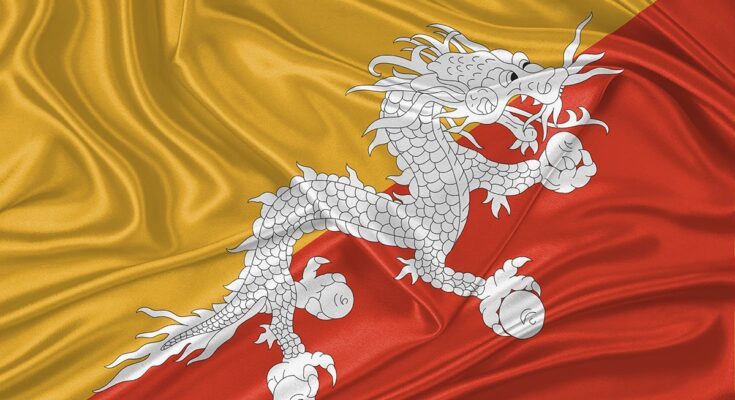TLDR
- Bhutan now holds over 13,000 Bitcoin, making it the third-largest government Bitcoin reserve in the world.
- The country’s Bitcoin reserves are worth approximately $1.3 billion, which is nearly 40% of its GDP.
- Bhutan began mining Bitcoin in 2020 using clean hydropower and locally assembled equipment.
- The government operates multiple mining sites and has expanded to at least six facilities by 2025.
- Bhutan used part of its Bitcoin reserves to fund public salary increases and strengthen fiscal stability.
Bhutan now holds the world’s third-largest sovereign Bitcoin reserve, totaling over 13,000 BTC worth approximately $1.3 billion. This figure equals around 40% of Bhutan’s gross domestic product and reflects a significant national strategy. The country’s state-owned entity, Druk Holding & Investments (DHI), actively manages and controls these digital reserves.
Bhutan began mining Bitcoin in late 2020, using locally assembled hardware and small installations near the Dochula Pass. Since then, Bhutan expanded operations, and by 2022, four government-backed mining centers were in operation. By 2025, the number had grown to at least six secure sites across the country.
Unlike other countries, Bhutan did not purchase or seize Bitcoin; it mined every coin using its domestic infrastructure. The mining operations depend entirely on renewable hydropower, making Bhutan’s crypto strategy distinct and sustainable. This approach positions Bhutan as a leader in clean energy crypto mining.
Bhutan Uses Bitcoin Gains for Public Salaries
Bhutan’s mining activities remain under the management of DHI, the country’s sovereign investment arm, and are overseen by government agencies. The country used Bitcoin revenue strategically, including a $100 million sale in 2023 to raise public sector salaries. This move supported fiscal relief while reducing workforce migration to neighboring countries.
During peak electricity production, Bhutan’s hydropower plants supply mining centers with surplus energy instead of exporting it. These centers operate as energy buffers, improving grid efficiency while maximizing value from excess generation. This mechanism makes mining both profitable and beneficial to national infrastructure.
Bhutan has framed its mining activities as environmentally friendly, branding the program as “green crypto.” The country uses zero fossil fuels in its digital asset operations and offsets coal-based mining emissions globally. The use of only clean energy reinforces Bhutan’s commitment to sustainability.
Crypto Expansion Aligned With National Development
Bhutan is scaling its hydropower capacity from 3.5 to 15 to 33 gigawatts over the next decade. This expansion supports larger mining facilities and additional revenue streams aligned with long-term digital strategies. The growth also prepares Bhutan for a broader role in the global crypto economy.

Gelephu Mindfulness City, a government-announced crypto city, will integrate Bitcoin into real estate, travel, banking, and city services. To support this initiative, Bhutan plans to launch a gold-backed digital currency and a full-reserve digital bank. These developments aim to establish Bhutan as a regional leader in blockchain innovation.
Source link



